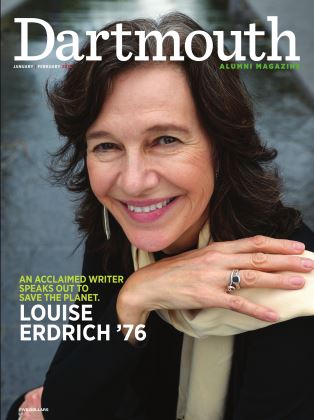EARLS SPENT MUCH OF THE PAST YEAR—HER first as legislative counsel of Cherokee Nation—preparing for the United Nations’ first World Conference on Indigenous People: She spoke at meetings, collaborated with the Indian Law Resource Center and helped the nation’s secretary of state prepare his address to the September gathering. It wasn’t Earls’ first interaction with a legal system. She was a plaintiff in Board of Education v. Earls, which challenged her high school’s policy of mandatory drug testing of students participating in extracurricular activities (the u.s. supreme court upheld the testing in a 2002 ruling). But Earls wasn’t aware federal Indian law existed until she studied it during her Sophomore Summer. “You don’t really see federal Indian lawyers advertising on TV,” says Earls, who majored in government. Native Ameri- can studies courses inspired her to study international indigenous law at the University of Tulsa.
One of her main responsibilities is to write the nation’s comments on federal proposals, particularly on issues of housing and healthcare. from tribal headquarters in tahle- quah, Oklahoma, she frequently travels to meet with lobby- ists and congressional representatives in Washington, D.C., and Oklahoma City. Her role has earned her a spot on the 2014 “Native American 40 Under 40” list by the National Center for American Indian Enterprise Development.
Earls says the Cherokee government is organized much like the u.s. federal government and has many of the same concerns of local governments everywhere: safety and clean air and water. She points out that investments the tribe makes in areas such as education benefit society as a whole, not only tribal citizens: “Where we help our tribal citizens, all boats rise.”
 View Full Issue
View Full Issue
More From This Issue
-
 Feature
FeatureFree Beer!
January | February 2015 By Denis O'Neill ’70 -
 COVER STORY
COVER STORYEarth Mother
January | February 2015 By KEVIN NANCE -
 Feature
FeatureD’Souza’s America
January | February 2015 By Matthew Mosk ’92 -
 Feature
FeatureNotebook
January | February 2015 By JOHN SHERMAN -
 Feature
FeatureClassnotes
January | February 2015 By DARTMOUTH COLLEGE LIBRARY -
 HISTORY
HISTORYBig Men on Campus
January | February 2015 By CLAIRE GRODON ’14







